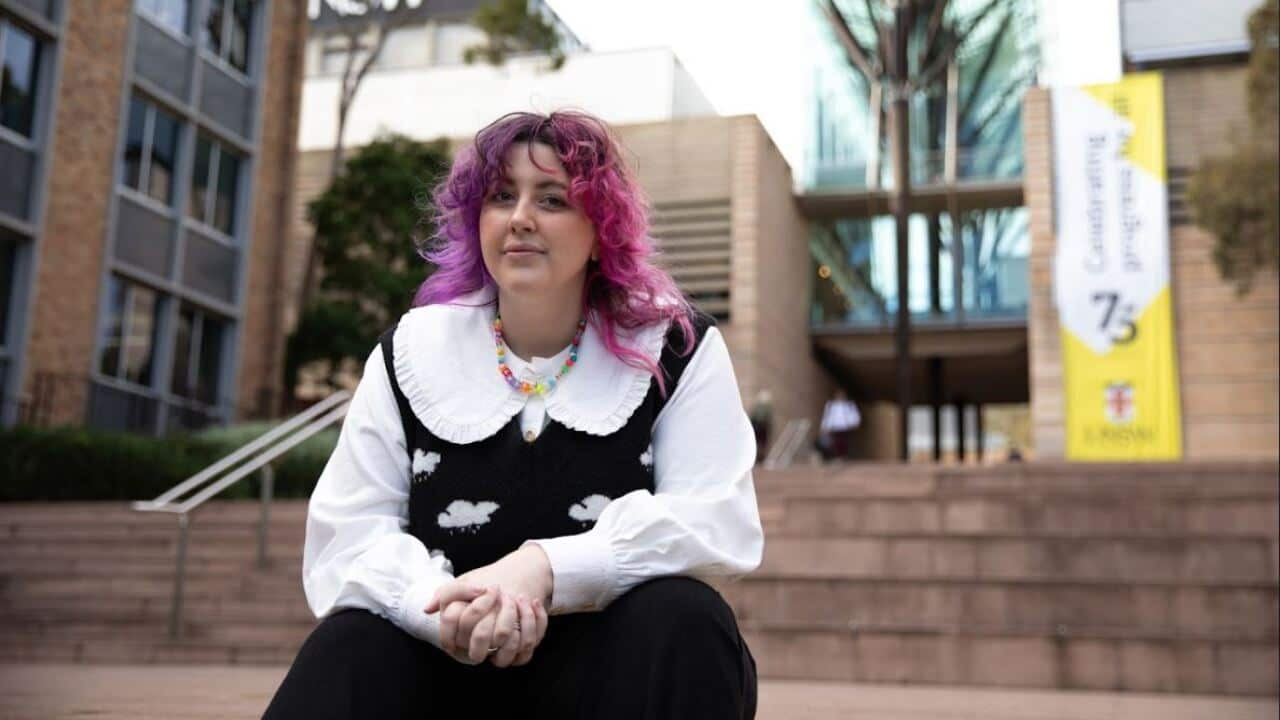This article contains references to eating disorders.
Chantel Le Cross fears becoming traumatised by social media content ever since Meta changed its community guidelines around hateful conduct.
The parent company of Facebook, Instagram, and Threads has made changes that now allow users to refer to LGBTIQ+ people as “mentally ill”, among other controversial moves.
Le Cross, 35, identifies as non-binary and lives with an eating disorder, and said they’ve already seen users become “emboldened in their hate speech” online.
They’re worried that exposure to online hate will trigger eating disorder behaviours, as stress can provoke their avoidant/restrictive food intake disorder (ARFID) symptoms.
“Certain communities have been quite emboldened in their hate speech and their phobias around certain minority groups,” Le Cross said.
“And that can really impact a person’s sense of safety and belonging.”
‘More speech’ and an end to fact-checking
Meta CEO Mark Zuckerberg announced a suite of changes to the social media company’s operations in January.
He said the social media giant would and move to a community notes model, like that seen on rival X, where users are responsible for moderating content.
Amid concerns about misinformation and disinformation, Zuckerberg said the platform would “allow more speech” on certain topics, including immigration and gender identity.
A specific clause under the hateful conduct guidelines now allows users to make “allegations of mental illness or abnormality when based on gender or sexual orientation”, citing political and religious discourse about “transgenderism and homosexuality”.
Meta also redacted previous measures that banned users from comparing women to household objects.
‘Dehumanising’ language sparks mental health concerns
Mental health advocates, like Butterfly Foundation spokesperson Mel Wilton, have condemned the policy shift.
There are particular concerns for the LGBTIQ+ community who already experience higher rates of mental illness, with two-thirds of trans people reporting experience with an eating disorder, according to the foundation.
“When vulnerable communities are exposed to hateful and harmful content, that’s just another burden for them to have to try and deal with and can certainly be very triggering for eating behaviours,” Wilton said.
There are also concerns around increasing rates of anxiety, depression and other mental illnesses, as lead clinical psychologist from Beyond Blue, Dr Luke Martin, explained.
“It’s very othering, and in many cases, it’s quite dehumanising,” Martin said.
“And so when someone is really attacked in that way just for being who they are, it can be very, very distressing.”
As someone who has experienced online bullying, Le Cross said sometimes “just one comment” can “really send them into a dark place”.
“I don’t know what I’m going to see when I open up my phone,” they said.
“And I’ve spent a lot of work curating my feed, and I want to make sure it stays a safe place for me and my community and friends.”
Social media experts ‘disturbed’ by Meta’s changes
Senior lecturer in media and communications at the University of Melbourne, Dr Jennifer Beckett, said this decision is “really problematic” for Australian users.
“I’m really quite disturbed by what I’m starting to see there, particularly in the way it’s started to use language specifically used by anti-trans groups in the past,” she said.
“So Mark Zuckerberg has effectively said with these changes that he is happy to have a culture on these platforms where you are able to denigrate women, people of colour and trans and other LGBTI people.”
Meta chief Mark Zuckerberg was at Donald Trump’s US presidential inauguration. Source: Getty / Chip Somodevilla
While the European Union’s Digital Services Act has enforceable protections against hate speech online, Australia’s anti-discrimination laws aren’t as strong.
Beckett said if users are expressing hate speech from the United States, “there is nothing we can do about it”, unless they directly target an Australian citizen and it falls under our law.
“But it will be very, very hard to say, take a US citizen up to court in Australia based on the anti-discrimination act here,” she said.
She said inter-jurisdictional legislation is required to “combat these types of behaviours from the platforms”.
“So effectively what one could hope for is that globally we kind of have an almost internet governance Interpol-type organisation where we all have very, very similar laws and we all speak to one another.”
Meta told SBS News it could not provide a statement at this time.
The e-Safety commissioner said in a statement to SBS News Meta is required to comply with Australia’s Online Safety Act, which aims to protect Australians from the most harmful content, including child sexual abuse material, terrorism and image-based abuse.
However, while persons can report online harms directed at them, the option does not apply if the abusive language is directed at a class or group.
The influence of Trumpian politics
Zuckerberg’s announcement came just weeks before US President Donald Trump’s inauguration.
Zuckerberg attended the ceremony and was seen alongside other tech giants, including Trump’s ally Elon Musk, who now leads a new US Department of Government Efficiency.
The timing of this policy shift is no coincidence, according to Beckett, who said Zuckerberg is trying to repair his relationship with Trump, who threatened to imprison Zuckerberg for life if he was found to interfere in the 2024 election, especially since he faces potential regulatory issues in the US.
“Bowing the knee to Trump is potentially one way for him to protect himself in those upcoming cases,” Beckett said.
Trump’s influence is already extending to Australian politics, according to Beckett.
Opposition leader Peter Dutton recently pledged to slash the number of public servants if elected, and while he maintains his party won’t make changes to gender-diverse identification, Dutton said there was merit in a discussion about trans women’s participation in female sport.
Beckett warns Australian users they should be concerned about a rising influx of such discourse, as well as misinformation and disinformation, particularly ahead of the federal election.
“We are already seeing our own conservative politicians spout the same MAGA-type content in this country.
“We are going to have platforms that have watered down these regulations and done away with fact checkers at a time in our country when we are going into a new election.”
LGBTIQ+ Australians seeking support with mental health can contact QLife on 1800 184 527 or visit . also has a list of support services.
Intersex Australians seeking support can visit Intersex Peer Support Australia at isupport.org.au.
For support with eating disorders or body image concerns, call Butterfly National Helpline on 1800 ED HOPE (1800 33 4673) or visit www.butterfly.org.au to chat online or email, 7 days a week, 8am-midnight (AEST/AEDT).

